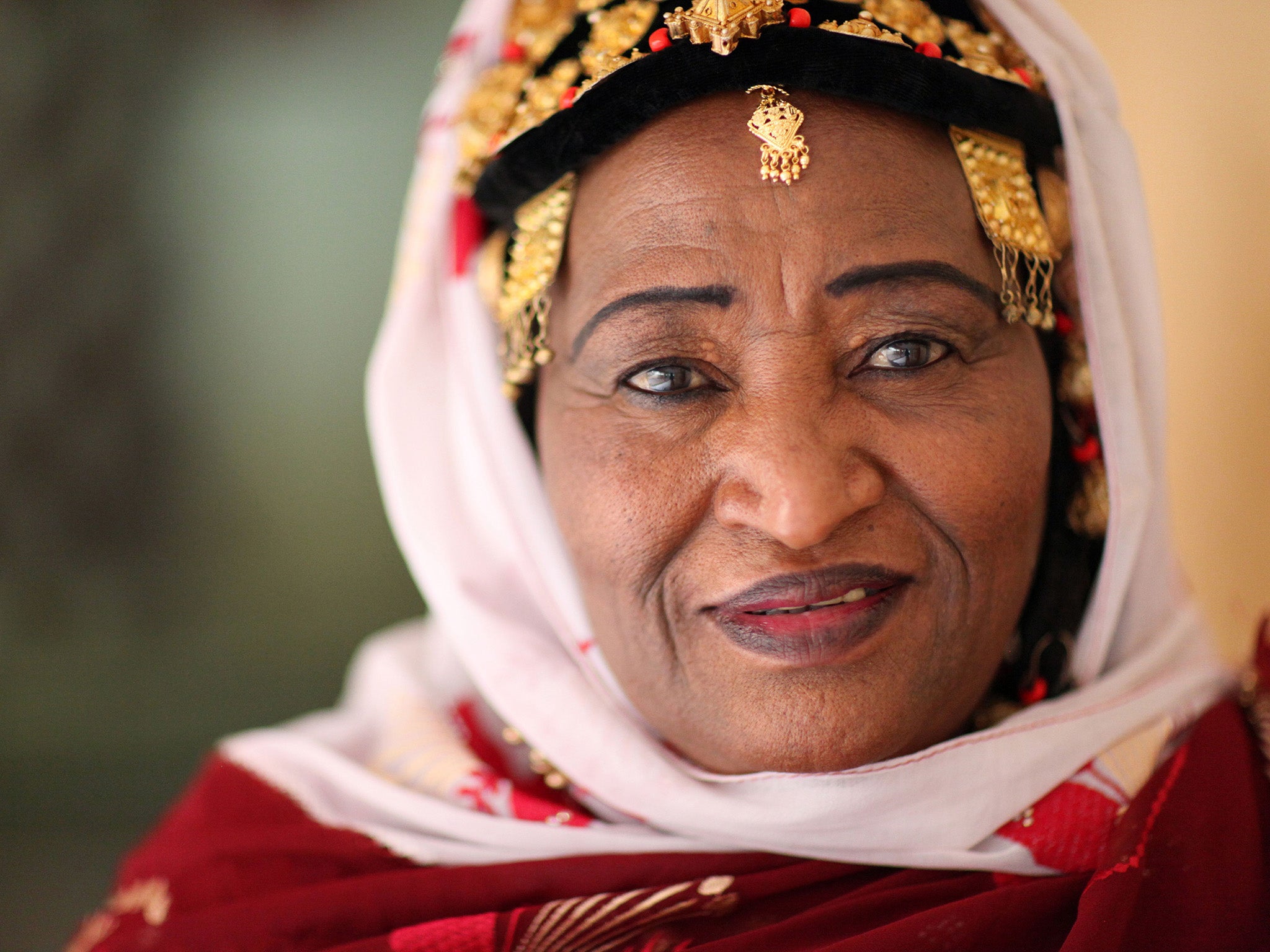Khaira Arby: Malian singer who blazed a trail for women as the ‘Nightingale of Timbuktu’
Khaira Arby’s father married her off to stymie her career, but she went on to international fame as artist and campaigner

Your support helps us to tell the story
From reproductive rights to climate change to Big Tech, The Independent is on the ground when the story is developing. Whether it's investigating the financials of Elon Musk's pro-Trump PAC or producing our latest documentary, 'The A Word', which shines a light on the American women fighting for reproductive rights, we know how important it is to parse out the facts from the messaging.
At such a critical moment in US history, we need reporters on the ground. Your donation allows us to keep sending journalists to speak to both sides of the story.
The Independent is trusted by Americans across the entire political spectrum. And unlike many other quality news outlets, we choose not to lock Americans out of our reporting and analysis with paywalls. We believe quality journalism should be available to everyone, paid for by those who can afford it.
Your support makes all the difference.Khaira Arby, the “queen of song” in Timbuktu, Mali, and “Diva of the desert”, used her immense voice to highlight the injustices facing girls and women in a conservative Muslim culture – injustices such as FGM.
When she was 16, Arby, who has died aged 58, was forced into a marriage by her father expressly to thwart her musical ambition.
But not even the controlling husband that landed her with and her responsibilities as a mother were enough to diminish that.
As she embarked on her first tour of the US in 2010 – to promote her album, Timbuktu Tarab (“My land, Timbuktu”) – critic Banning Eyre promised Arby would be “giving Americans their first glimpses of a desert rose. But as they’ll discover, that rose has both a beautiful crimson flower and razor-sharp thorns.”
Indeed, if she was the “Nightingale of Timbuktu” as she was called, that nightingale had teeth. America’s NPR praised her “stunning vocal chops”.
She sought, in her music, to unify the multicultural society she was from but shied from being saccharine.
“In Timbuktu, there are the black Tuareg, there are the white Tuareg,” she said. “There the white Arabs, there are the black Arabs. There are the Sonrhai. There are the Peul. There are the fishermen. There are the masons. There are the minors, and those who go to seek salt in Taoudeni. There is all of that in Timbuktu. This is why in my music, all the ethnic groups of Timbuktu find themselves. They all find themselves in my music, and I sing to them one by one.”
Arby was born in Abaradjou, a village in the Sahara Desert, to a Muslim Songhai and Tuareg family. She made her performing debut at 11.
Arby’s relative through marriage, Grammy-award winning guitarist Ali Farka Toure, provided pivotal encouragement. He helped finance her band and booked her as a guest artist for his own concerts. Arby released her first album. Moulaye, in the nineties. Her music reflected the diversity of her country. A French speaker, she sang in Arabic, Bambara, Tamasheq and Songhai.
It was at the Saharan Festival in The Desert in 2003 that Arby finally came to wider attention. The Washington Post hailed her “infectious joy” in 2010. A year later, she won Mali’s prestigious Tamani D’Or award, which crowned her the best Malian musical artist of the past 50 years.
Arby’s music could not be pigeonholed. She combined Malian tradition with reggae, funk and blues.
She remained outspoken during an exodus of musicians from Timbuktu when it became overrun by Islamist terrorists in 2012, removing to Bamako, the capital of Mali. Their music was considered “satantic” by Tuareg rebels backed by al-Qaeda in the Islamic Maghreb. Women were thrashed in the streets for not covering their hair. Alleged thieves had their hands cut off in 10 months of occupation before French and Malian ground troops backed by air strikes forced the Islamists to retreat into the desert in January 2013.
That year, Arby joined with other big names in the Malian music scene to protest against the crisis in the north of Mali with a song called “Mali-Ko” (Peace). She also appeared in a documentary about the fate of Malian musicians under the Islamist occupation called “They Will Have To Kill Us First”. For her pains, she and her family received death threats.
Arby remained exiled from Timbuktu until December 2017, when she returned to make an appearance at a concert series called Timbuktu Renaissance. It was a potentially dangerous undertaking conducted under high security.
The singer hoped that eventually she would be able to return to Timbuktu on a permanent basis and build a recording studio there. It was a dream left unfulfilled. She died in Bamako, after a short illness.
Arby was married twice. Her second husband predeceased her. She is survived by five sons, a daughter and 14 grandchildren.
When she was in Harlem that year, she spoke of her homeland: “All the young women want to become musicians. I can say that I had a role in that. So that people could understand that women can become musicians. You can be a Muslim and a musician. It doesn’t hurt anything.”
Khaira Arby, singer, born 21 September 1959, died 19 August 2018
Subscribe to Independent Premium to bookmark this article
Want to bookmark your favourite articles and stories to read or reference later? Start your Independent Premium subscription today.
Join our commenting forum
Join thought-provoking conversations, follow other Independent readers and see their replies
Comments